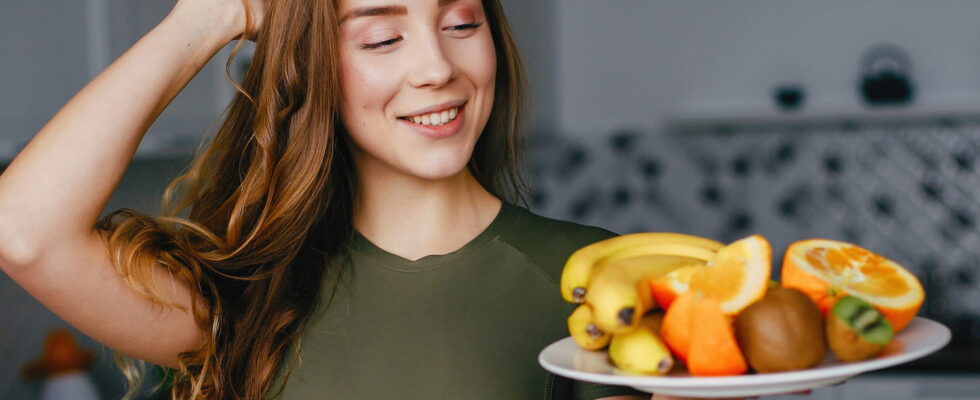It fights fatigue very quickly.
Not feeling great at the moment? When we say “change of season”, we often say “fatigue” and “seasonal depression”. Autumn is approaching, the days are getting shorter, the light is getting dimmer and the weather is getting more and more gloomy. Quite naturally, we sleep a little less well, we are more tired, less equipped to deal with the little seasonal viruses and more exposed to a drop in morale. Fortunately, this is not inevitable…
An anti-fatigue weapon and an immunity booster, diet has a big role to play. Especially fresh fruits and vegetables which are well-stocked with vitamin C, the “star” active ingredient of the month of September. One of these fruits is particularly interesting to cover your vitamin C needs since one portion (one fruit) provides up to 130 mg of vitamin C, which is almost twice as much as an orange (which already contains 70 mg). Which also covers all of our daily vitamin C needs.
This fruit has other benefits: its high fiber content contributes to good intestinal transit and its phenol content gives it a probiotic effect, which is very interesting for the intestinal flora and digestion. Rich in fiber, it prevents cravings by providing good satiety throughout the day. It is very low in calories (around 80 calories per portion), has a low glycemic index (despite its sweet taste) and fits wonderfully into a healthy and balanced diet.
In a study published in the British Journal of Nutrition, researchers from the University of Otago in New Zealand have shown that this fruit also contributes to maintaining a stable mood. To reach this conclusion, they divided 155 adults aged 18 to 35 with low vitamin C levels into three groups: the first had to take a placebo tablet every day, the second a 250 mg vitamin C tablet and the third consumed two portions of this fruit. The vitality, fatigue, mood and psychological well-being of the participants were then measured. At the end of the two-month follow-up, the group with the most vitality, fulfillment and good mood was the one that had consumed the fruit. The effects were visible from the 4th day and persisted for up to two weeks after the intervention.
So what is this “miracle” fruit that we should not deprive ourselves of right now? It is the “gold kiwi” (“yellow kiwi” or Actinidia deliciosa for its Latin name), whose golden flesh – much sweeter and more vitamin-rich than its green counterpart – will seduce all palates.
Breakfast is the perfect time to eat one (or even two) yellow kiwis, to boost your body in the morning and face the day with more energy. Vitamin C is very fragile and denatures very quickly on contact with light or heat: it is preferable to consume fresh kiwi rather than juice.
